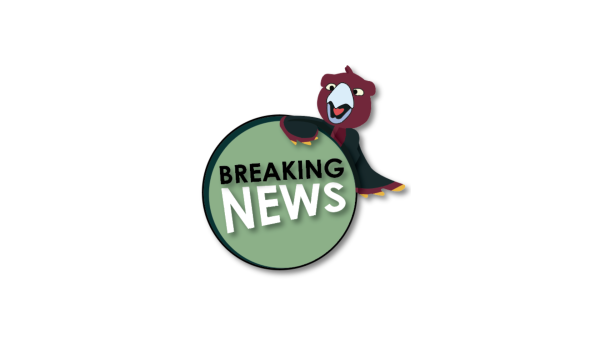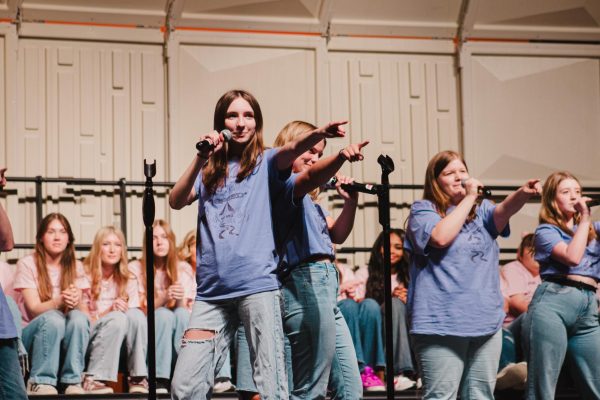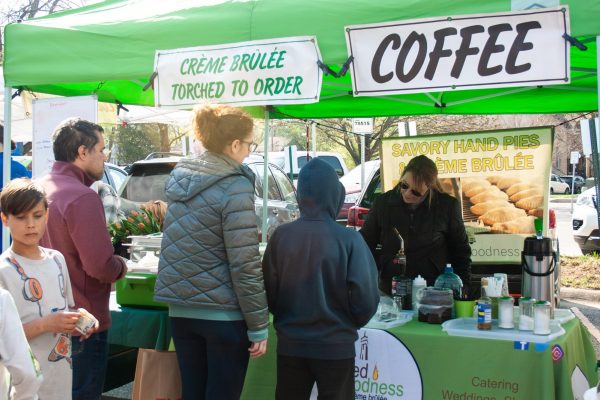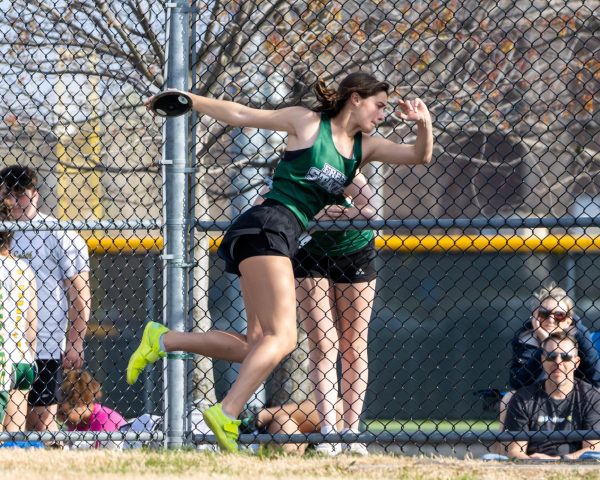Liberalism in Lawrence
With a “honk for hemp” sign waving back and forth, an unpaid musician strumming a guitar in the park gazebo and the smell of fresh pizza wafting from the local family owned restaurant, small-town liberalism permeates Lawrence. However, the roots of the liberalism are less obvious.
Like a minuscule blueberry at the bottom of a bowl of big red apples, Lawrence is the hopeful yet hopeless group of liberals surrounded by the conservatives filling Kansas’s border.
The bleachers at Allen Fieldhouse are more often filled with blue t-shirts rather than crimson, illustrating the fact that we are not only the town of the Jayhawks, but also one of the only politically blue areas in Kansas. Some believe that the two characteristics go hand-in-hand.
History and government teacher Kimberly Grinnell believes Lawrence is liberal because it’s a college town.
Grinnell explained the trend for people in education, especially higher education like the University of Kansas, is to be liberal.
“I think that when you’re educated you get to see both sides,” photography teacher Marsha Poholsky said, “… And I think that because Lawrence has a large emphasis on education, people are always gathering new information and looking at all sides of an issue.”
Of course, the trend is by majority not unanimity. Just as there are conservative families in Lawrence, there are conservative professors and other employees of the university.
Of the near 90 thousand people residing in Lawrence, a little over 30 thousand are enrolled at KU. If KU is the root of liberalism in Lawrence, the numbers support the extent of the university’s effect on the democratic-leaning election results.
If the numbers aren’t enough to prove the university’s impact on the community, Massachusetts street after a big win might be. The street is packed with fans shoulder to shoulder, some friends and some strangers, all sharing a mutual love for the Jayhawks.
Lawrence is different, and that isn’t just a cliche statement coming from a biased Lawrencian.
“I think we also have a large influx of people from both coasts because of the University,” Poholsky said, “and we also have a lot of free-thinking [people] and Lawrence is kind of accepting of that. It always has been.”
The hole in this theory is the conservatism of other college towns. If “college” and “liberalism” are synonymous, then there must be a difference between KU and other college towns, especially Division 1 college towns like Manhattan, that are primarily conservative.
“Obviously K-State … is more conservative and that might have more to do with the students that are attracted to K-State versus KU,” Grinnell said.
If more “liberal” students or a more diverse overall group of students are attracted to KU then that would sensibly contribute to Lawrence being more liberal.
K-state is the more agriculturally-focused institution, typically attracting students from smaller towns in Western Kansas where more conservative families reside.
Your donation will support the student journalists of Lawrence Free State High School. Your contribution will allow us to purchase equipment and cover our annual website hosting costs.







